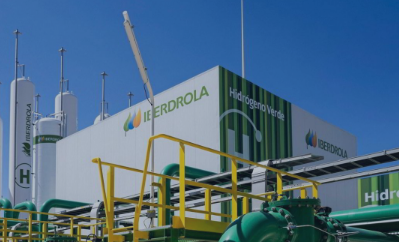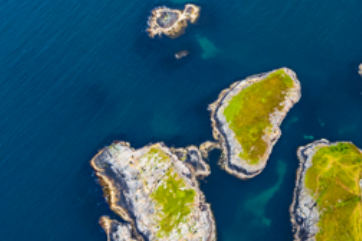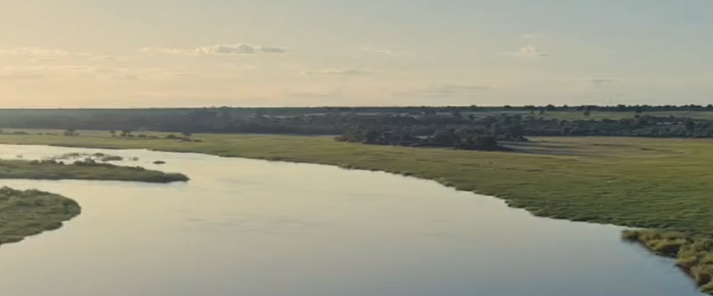Iberdrola: Innovating for a Clean Energy Future
Start Reading

1. Company at a Glance
In this case study, we discover how Iberdrola, a multinational company specializing in renewable energy and electricity grids, has transformed its business model to address the urgent challenges of decarbonization and the electrification of the economy. Through innovative practices, strategic investments, and a commitment to sustainability, the company has demonstrated how businesses can drive the transition to a clean energy future while fostering economic growth and social development.
Iberdrola is one of the largest electricity utilities worldwide.
Energy
Industry
1901
Founded
Spain
Headquarter
Over 42,000
Number of Employees
More than 40 countries across Europe, the Americas, South East Asia and Australia
Global Workforce
2. The Challenge
Iberdrola decided to transform its energy model to ensure a sustainable, robust, and competitive energy transition and combat climate change. This strategic path aligns with the Paris Agreement and the European Green Deal, addressing the increasing global demand for decarbonization and clean energy. This transformation strengthens Iberdrola's market position, reputation, and long-term business sustainability while addressing the climate crisis and ensuring the creation of value for society and nature.
3. The Action
Commitment to Decarbonization
Iberdrola has set ambitious decarbonization goals, including achieving net-zero emissions for all scopes before 2040. It aims to reduce absolute GHG emissions by 65% by 2030 (from 2020 levels) and reach neutrality in direct and indirect emissions (Scopes 1 and 2) by 2030. These commitments align with SBTi’s Net-Zero Standard.
Strategic Investments
The company has outlined a €41 billion investment plan for 2024–2026. This includes €21.5 billion for grid enhancements in stable markets, €15.5 billion for renewable energy-focused heavily on offshore wind projects—and €1.5 billion for energy storage to reach 120 million kWh of capacity.
Promoting Clean Energy Projects
Iberdrola is deploying significant renewable energy infrastructure, such as the Tâmega Giga-Battery in Portugal, East Anglia ONE offshore wind farm in the UK, and the Núñez de Balboa photovoltaic plant in Spain. These projects contribute to reducing CO2 emissions and supplying clean energy to millions of households.
Engaging and Supporting Supply Chains
To align its supply chain with its net-zero goals, Iberdrola has introduced ESG criteria for suppliers and has the objective of ensuring that at least 85% of the group’s main suppliers are subject to sustainable policies and standards for the 2023–2025 period. It provides tailored improvement plans, free carbon footprint tools, and training hubs to support suppliers, with a focus on small and medium enterprises.
Driving a Just Transition
Iberdrola ensures a fair and inclusive energy transition by creating green jobs, providing training programs, and fostering industrial activity in affected regions. This includes initiatives like the Citizens’ Innovation Platform, renewable projects in former coal areas in Spain, and skill-building programs for vulnerable groups, with a special focus on youth.
Since 2021, the Company has been co-leading the Reskilling for Employment (R4E) project, a joint initiative with major European companies to reduce skills mismatches and increase employment opportunities in sectors related to the energy transition. To date, more than 1,000 people have been retrained to adapt their careers to sustainable jobs.
Advocacy and Global Engagement
Iberdrola actively participates in global climate initiatives, advocating for ambitious policies to accelerate the energy transition and the achievement of the climate goals. It collaborates with organizations like the United Nations Framework Convention on Climate Change (UNFCCC) (with an active involvement at COPs), UN Global Compact, We Mean Business (WMB), the Corporate Leaders Group (CLG) or the Global Renewables Alliance (GRA), and leading campaigns such as “Forward Faster” (UN Global Compact) and “Fossil to Clean” (WMB)
Transparency and Reporting
The company has adopted robust frameworks like TCFD and SBTi to ensure accountability and transparency in its climate actions. Iberdrola regularly assesses the alignment of its activities and partnerships with the Paris Agreement.
4. Overcoming Barriers
Supply Chain Engagement: overcame supplier challenges by implementing personalized improvement plans, providing carbon footprint calculators, and creating climate training hubs.
Local community involvement: the deployment of renewables has to bring socioeconomic value for the local communities and be in harmony with nature.
Stable regulatory frameworks and policies to support long-term investments for the deployment of clean energy and infrastructure
5. Impacts & Results
Reduction in Emissions:
Iberdrola achieved a 29% reduction in emissions (Scopes 1, 2, and 3) compared to 2020, reaching levels of 49 gCO2/kWh in Europe and 77 gCO2/kWh globally in 2023.
Commitment validated by SBTi net-zero methodology to reach net-zero emissions across all scopes before 2040.
Economic and Social Impact:
The construction of renewable energy projects has contributed to local economic revitalization, such as in former coal areas, and the creation of green jobs and industrial development.
Economic and Social Impact: Initiatives like the Citizens’ Innovation Platform foster collaboration and socio-economic resilience in communities undergoing energy transitions.
Programs like the School of Electricians for women in Brazil, STEM scholarships in Mexico, and the collaboration with UNICEF to promote green education and training as well as green employment opportunities for vulnerable youth.
Renewable Energy Deployment:
Iberdrola has installed more than 42GW of renewable energy capacity, including 1,793 MW of offshore wind power by 2023, with plans to add 3,000 MW by 2027.
Supply Chain Sustainability:
In 2022, 87% of purchases were made from local suppliers, promoting economic growth and sustainability in Iberdrola’s operational regions.
In 2024, the company achieved 87.9% adherence to ESG standards among its key suppliers, surpassing the company’s target of reaching 85% by 2025.
Recognition and Transparency:
Iberdrola is recognized as a leader in climate reporting, being one of the first companies to adopt the TCFD recommendations and develop internal frameworks for monitoring and transparency in climate actions.
6. Key Lessons Learned
Invest in Innovation:
Invest in transformative projects to develop innovative solutions and ensure competitiveness and value creation.
Work in Alliances:
To achieve a successful energy transition to a net-zero economy, it is essential to collaborate with the different stakeholders to ensure the climate goals are met.
Support a Just Transition:
Understand the just transition in all its dimensions and take into account all actors (from workers and local stakeholders to youth, suppliers, nature...).
Ensure Nature and Biodiversity Protection:
The deployment of renewables and networks has to be done in harmony with nature and ensuring the protection of biodiversity.
Adopt a Climate Transition Plan:
The plan must aim at achieving net-zero emissions, in line with the global goals, science-based and backed by a robust strategic investment plan.
Electrification and Clean Energies:
The development of clean energies combats climate change and offers a sustainable, competitive and secure business model that creates value for society and nature.
Plan Early and Set Clear Goals:
Begin the transition early and align with science-based frameworks like SBTi to set measurable, credible, and time-bound sustainability targets.
“An ambitious approach to climate action and the decarbonisation of the economy through an accelerated renewable-based electrification brings unique opportunities for industries and for employment, as well as the creation of value for people and nature.”
Gonzalo Sáenz de Miera, Global Director of Climate Change and Alliances at Iberdrola
7. Resources
Iberdrola has been a committed participant in several UN Global Compact initiatives since 2002:
Patrons of Climate and Environment
Member of Just Transition Think Lab
Signatory of all targets of the Forward Faster initiative
Participant in the Business and Human Rights Accelerator (2024)
Signatory of the CEO Water Mandate
Participant in the Climate Ambition Accelerator
Member of Ocean Stewardship Coalition
Member of Ocean Stewardship Coalition
Signatory of the Women Empowerment Principles
Inspired to take action?
Recommended UN Global Compact resources available to support your journey:
Disclaimer: This case example is intended strictly for learning purposes and does not constitute an endorsement of the individual companies by the UN Global Compact.



